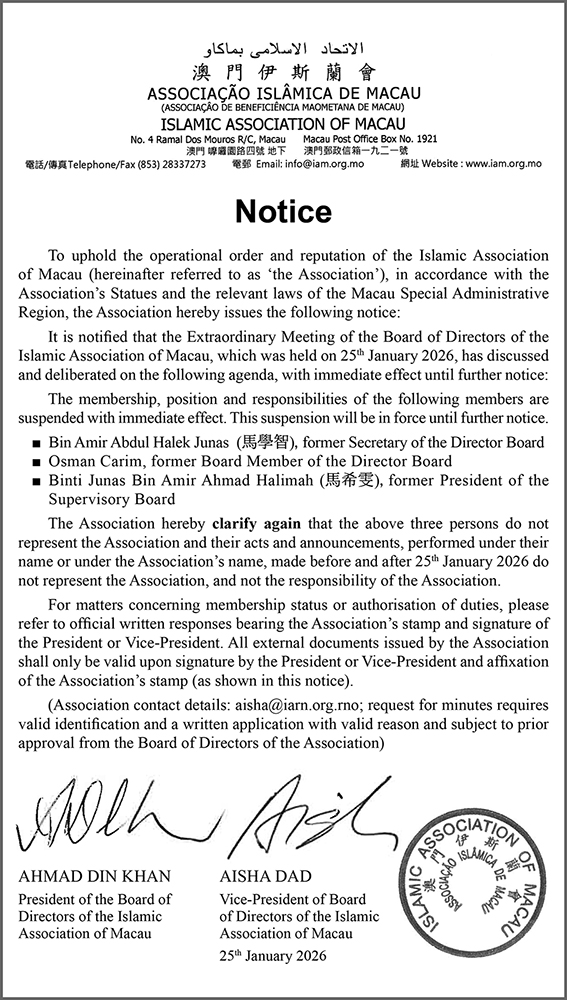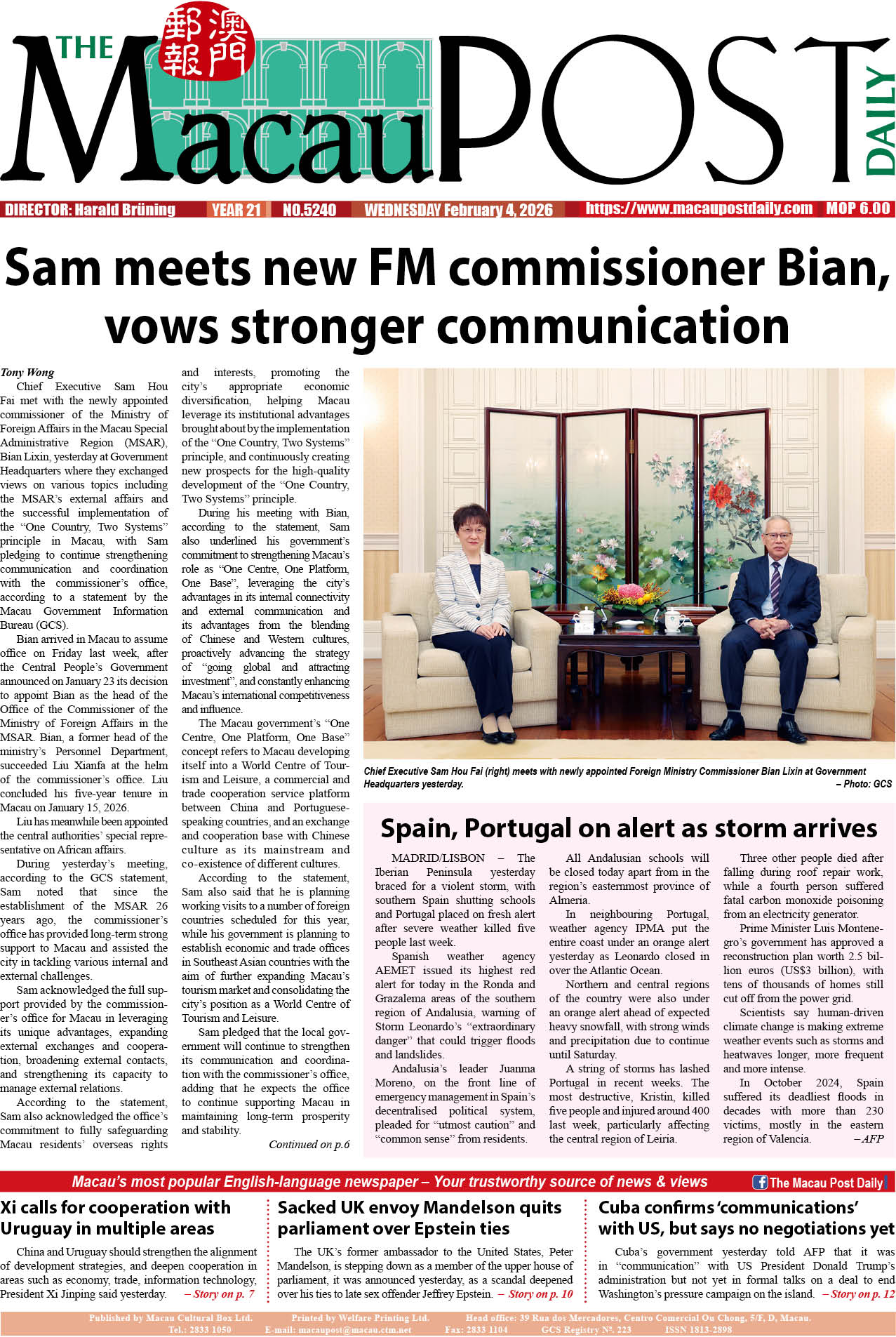Editorial
President Xi Jinping’s pithy speech at the first session of the 14th National People’s Congress (NPC) on Monday morning reminded me of William Shakespeare’s inspirational quote from act 2, scene 2 of Hamlet, spoken by Polonius, that “brevity is the soul of wit”.
The English translation of his address, delivered in the Great Auditorium of the Great Hall of the People in Beijing, comprises 1,458 words. The speech was quite brief but very concise and succinct. I think it was one of Xi’s best speeches that I have read.
It was Xi’s first speech after his election as state president for a third five-year term. He commenced his speech by expressing his “heartfelt gratitude for the trust placed in me by all the [NPC] deputies and the Chinese people of all ethnic groups.
“It is my third time to take on this noble position of the president of the People’s Republic of China.
“The people’s trust has been my greatest source of strength to go forward and also the greatest responsibility on my shoulders.”
Both Xi and I were born in June 1953. We are of the same generation that has been confronted with global politics’ ups and downs over the past 70 decades such as the world’s economic development challenges, wars and social modernisation efforts. I still remember my kindergarten and primary school classmates from low-income families who – unlike me – had hardly any toys to play with and whose parents were struggling to make ends meet. As a university student in the early 1970s I was shocked by grinding poverty that I encountered elsewhere in Europe, such as in Spain and Portugal where hundreds of thousands were forced to emigrate to central and northern Europe to make a precarious living as labourers.
That’s why it’s a shame that so many in the West still seem to be reluctant or even outright unwilling to acknowledge China’s great success during Xi’s first two terms in alleviating poverty.
In his speech, Xi expressed his determination to “take the needs of the country as my mission and the people’s interests as the yardstick to follow.”
Of course, as anyone familiar with China’s five-millennia-long history would expect, Xi also referred to his country’s “bullying by foreign powers and frequent wars” and underlined the successful endeavours by the Communist Party of China (CPC) over the past 100 years “to put an end to China’s national humiliation” so that “China’s national rejuvenation has become a historical inevitability”.
Xi also stressed his commitment to implementing the Party’s “Five-sphere Integrated Plan”, which takes economic development as the key link, thereby continuing to reform the country’s political structure, and speeding up its cultural and ideological progress, as well as its “Four-pronged Comprehensive Strategy”. The latter was put forward by Xi in 2014. Its four goals are to comprehensively build a moderately prosperous society; comprehensively deepen reform; comprehensively govern the nation according to law; and comprehensively govern the Party in a strict way.
In his speech, Xi reaffirmed the need to speed up the nation’s modernisation and to “make due contributions of our generation to building a great country and achieving national rejuvenation.”
Xi insisted that in order to achieve national rejuvenation, the country “must unswervingly promote high-quality development” by applying the Party’s new development philosophy, fostering a new development pattern, focusing on achieving greater self-reliance and strength in science and technology, and making further efforts to build a green and low-carbon economy.
“We must remain committed to putting the people first,” Xi said, adding that “we must [also] proactively develop whole-process people’s democracy.”
A Foreign Ministry statement in 2021 defined “whole-process people’s democracy” as consisting of democratic elections, consultations, decision-making, management, and oversight. “It integrates process-oriented democracy with results-oriented democracy, procedural democracy with substantive democracy, direct democracy with indirect democracy, and people’s democracy with the will of the state.” The statement, released by the Chinese embassy in Australia at that time, also said that “democracy is not a one-size-fits-all product that has only one model or configuration for the whole world”, pointing out that “there is no best democracy, only better.”
So true! William H. Hastie (1904-1976), the first African-American to serve as a US federal appellate judge, was right when he said that “democracy is a process, not a static condition”.
Xi also admitted in his speech that “we must do a better job of seeing to it that that the gains of modernisation benefit all our people fairly,” and he called for the “mobilisation of all positive factors to give shape to a mighty force for building a great country and advancing the rejuvenation of the Chinese nation.”
In his speech, Xi also reaffirmed the fundamental but often inadvertently or deliberately ignored fact that “security is the foundation of development and stability is the prerequisite for prosperity.” Gangland violence in Hong Kong and Macau, such as armed robberies and drive-by shootings in the 1980s and 90s respectively, showed insecurity’s pernicious impact on civil society.
Xi called for a “holistic approach to national security” and promised that “with this new security architecture, we will be able to better safeguard China’s new pattern of development”. He also urged the country to “build the people’s military into a great wall of steel, that can affectively safeguard our nation’s sovereignty, security and the interests of our development.”
His remarks aren’t surprising, considering the increasingly volatile international security environment and expansion of existing and formation of new military alliances such as AUKUS.
Xi’s speech devoted 118 words to Hong Kong and Macau, or eight percent of its English-language version, which shows the central authorities’ outsize concern and care for both. Hong Kong is not even among the nation’s Top Ten cities by population, and Macau is not among its about 100 cities with more than one million inhabitants. But, of course, both are SPECIAL administrative regions.
As expected, Xi once again urged Taiwan’s pro-independence administration to uphold the one-China principle and 1992 Consensus (when both sides agreed that there is only one China in the world).
On the international front, Xi said that “we must strive to promote the building of a community with a shared future for mankind,” pointing out that “China’s development benefits the world, and China cannot develop in isolation from the world.” Calls by certain politicians in the US and even in the EU to decouple from China’s economy is nothing more than political applesauce. If carried out, it would be the economic version of the military doctrine of mutual assured destruction (MAD being its appropriate abbreviation).
Xi also called for the further implementation of the China-initiated Global Development Initiative (GDI) and Global Security Initiative (GSI).
And he concluded his keynote speech by insisting that “to do a good job of governing the country, the Party should do a good job of governing itself.”
Yes, indeed!
– Harald Brüning








